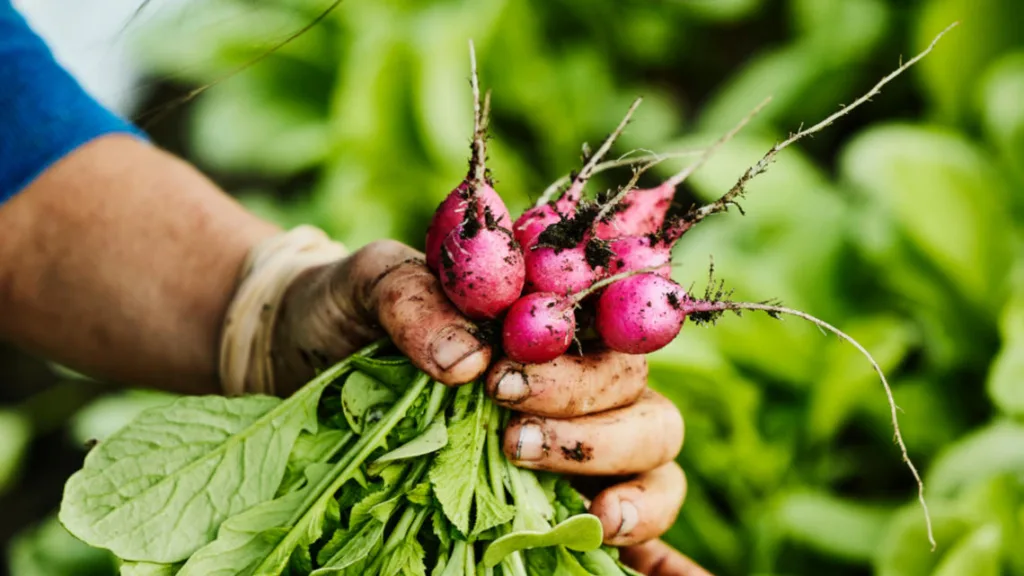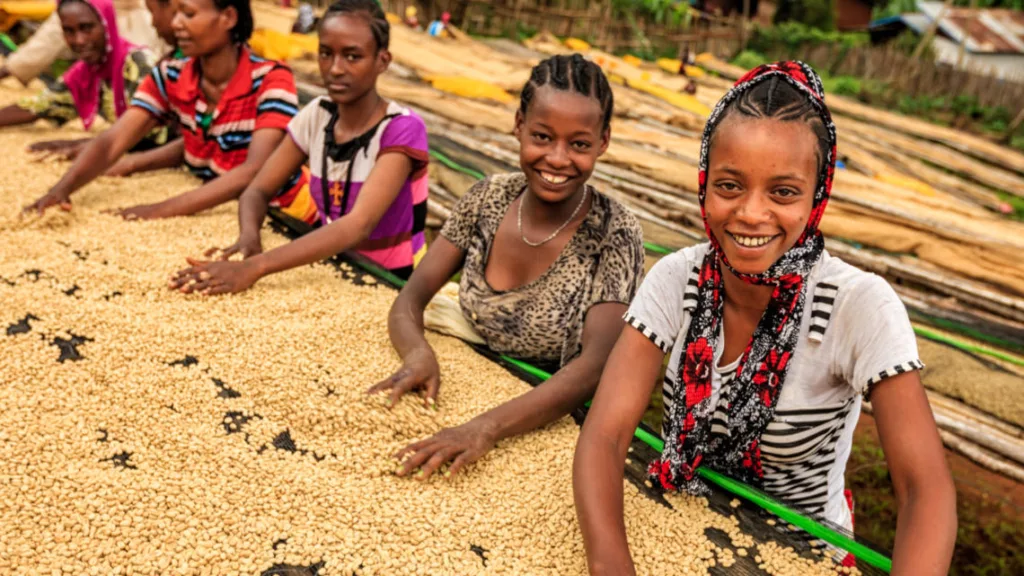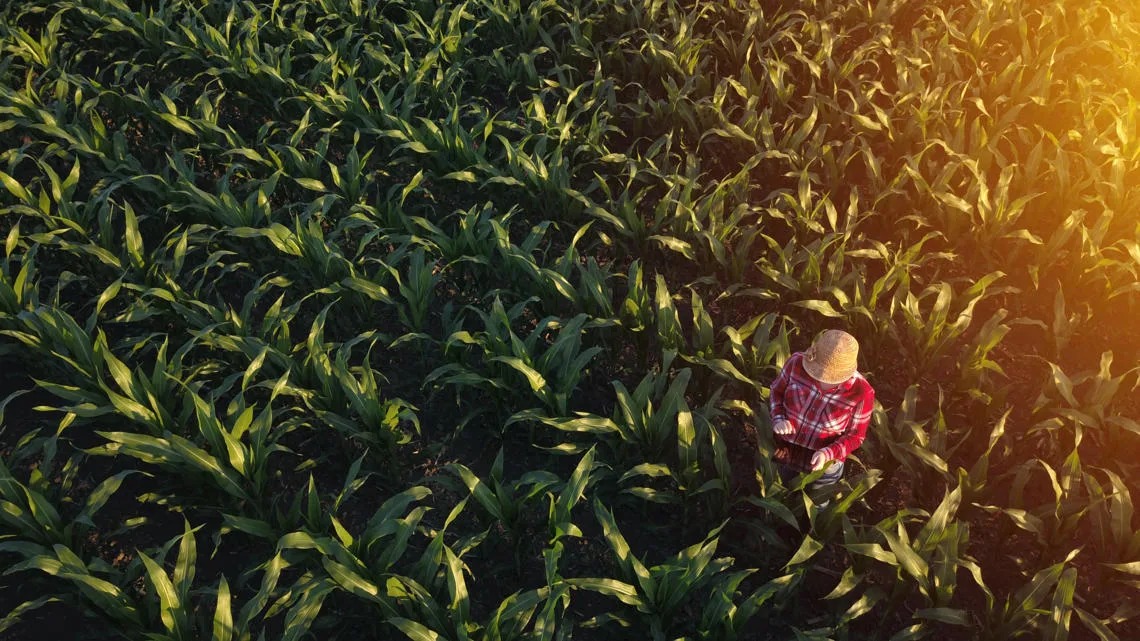Authors
David Nabarro, Diane Holdorf
COVID-19 has been a great revealer of the inequities of our societies and the weak points in many of our vital supply chains. The pandemic has particularly highlighted the risks and disruptions to our food systems. Chronic hunger and food insecurity is doubling as a result of this crisis, threatening hundreds of millions of lives across the world. Amid the resulting economic recession, a further 50 million people risk falling into extreme poverty as lockdowns and restrictions continue to decimate incomes, spike unemployment and put nutritious food out of reach for many people. Business has an urgent, critical role to protect people’s livelihoods and nutrition in the face of COVID-19 and advance collective efforts to build an equitable, sustainable and resilient food system for all.
Business as driver for food system recovery
Now more than ever, business has the imperative to address inequity through effective, responsible and sustainable action. This is already a deeply complex time for companies navigating dramatic changes, making hard choices with insufficient information and inability to forecast. But with government safety nets weakened or absent, it becomes a principal responsibility for business to protect and support workers across value chains to enable a resilient food system recovery. We’ve seen examples during COVID-19 of companies doubling-down on their efforts to protect employees, farmers and producers, enhancing flexibility to keep essential supply chains working and partnering to address dangerous disruptions of vital supply chains faster – and at scale.
Social equity as an imperative
COVID-19 prompts us to confront the reality that the functioning of our societies rests on a tolerance for people living in extreme of poverty, powerlessness and injustice. This is shockingly evidenced by the inequities of our food system. Essential workers, farmers and suppliers who do the hard work to produce the food we eat are too often paid the least and endure the biggest risks. Infection rates continue to soar, in many countries, (particularly among people with low incomes) while they do their best to strengthen their defences against the emergence of new outbreaks. National economies are in recession, many small and medium enterprises are failing, debt is increasing and people’s poverty, hunger and distress increases everywhere. Business support for building equity and resilience in all food and livelihood systems is urgent.
Protecting employees is a priority
Protecting employees is one of the seven “Principles for a Strong Response” to COVID-19 that WBCSD created with its members and partners to guide business action. Business’ initial priority must be to create safe working conditions for all employees. With market shares, employees and consumers all over the world – including countries facing severe nutritious food availability shocks – multinational corporations have a critical responsibility to support SMEs, contractors and producers across their food chains. Another key principle is accelerating producer-focused responses. Businesses need to invest in support throughout their value chain to provide health guidance, safety equipment and cash flow mechanisms to protect workers from poverty and risk exacerbated by COVID-19.
Several companies are setting leading examples grounded in the Principles of a Strong Business Response to COVID-19. Majid Al Futtaim has retained all 44,000 of its global workforce without cutting salaries. Danone and Unilever are providing hundreds of millions of euros in financial support to the small farmers, suppliers and service providers in their supply chains. Others such as Barry Callebaut and Olam are investing to support farmers with pandemic sensitization training and mobile payments to support farmers. WBCSD is tracking growing examples of companies taking collective, committed action.
The Principles are offered to help as many companies as possible around the world to meet this moment. More companies need to step up, especially on equity. These issues are uncomfortable and challenging for business. They require trade-offs that are hard to calculate within strategic decision-making. For this reason we must openly discuss and work collectively to share learnings to make companies, our food system – and our economy– safer and sustainable for all.
Ultimately, these Principles offer companies the basis for operating in a world that is learning to live with COVID. Amid the growing disruptions and insecurities to livelihoods, people are looking for institutions they can trust. Companies leading the charge to deliver essential services and workers across value chains are striving to build trust among their employees, shareholders and customers at a time when company values make or break livelihoods. How a company treats those with the least power is a measure of its care for its own future.
The ways in which companies engage now will define their values for a decade to come. This should spur us to collective and constructive action, based in principled responsibility, that helps us on the journey towards more inclusive, thriving societies.
- David Nabarro is co-director of the Institute for Global Health Innovation at Imperial College London and serves as a Special Envoy of the World Health Organization for the COVID-19 response
- Diane Holdorf is Managing Director, Food & Nature at the World Business Council for Sustainable Development
WBCSD news articles and insights may be republished in accordance with the Creative Commons Attribution-NonCommercial-NoDerivatives 4.0 International Public License, and in accordance with our Privacy Policy. All Content must be featured with due credits.
Outline
Related
Content

WBCSD joins the Nutrient Density Alliance
13 October, 2023

Meat and dairy analogues of the future call for a focus on affordability, innovative business models and a just transition
20 September, 2023

Business action to unlock the potential of African farmers – WBCSD’s takeaways from the AGRF Summit 2023
14 September, 2023
